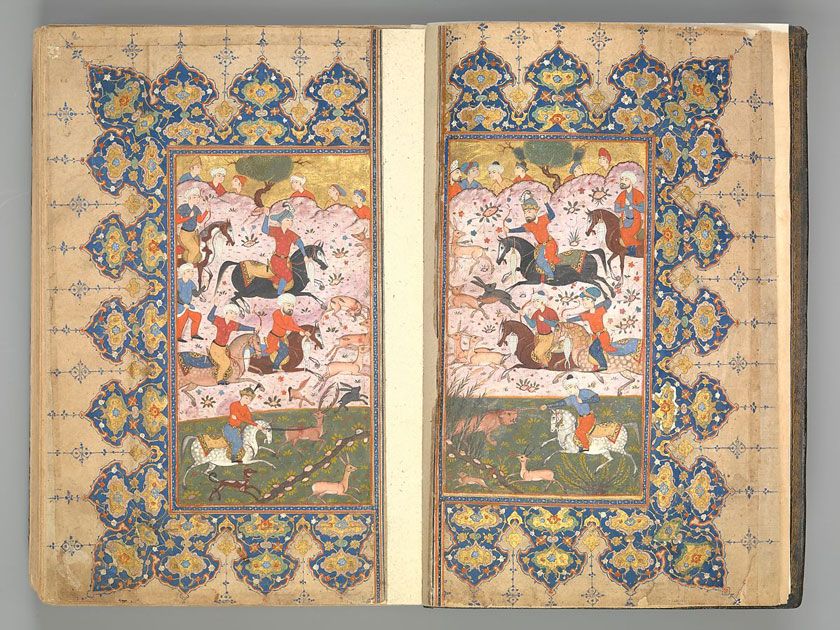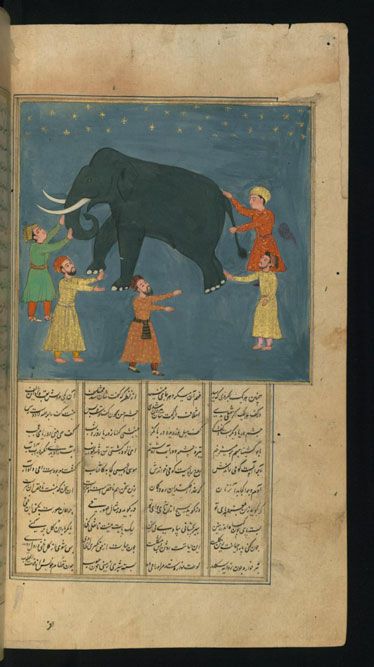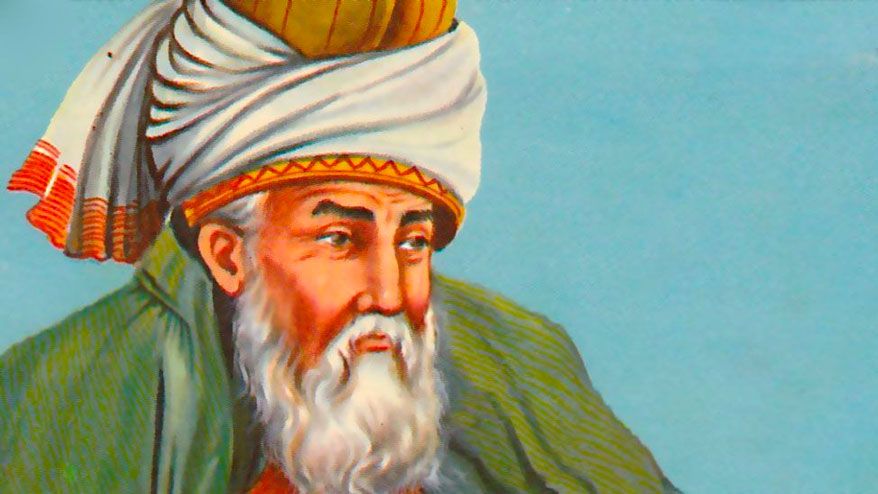To most of the Internet, Rumi is fondly attributed to inspirational life quotes on Pinterest boards and social media captions. To those who take the extra step to Google him, he is also a 13th-century Iranian poet and a Sufi philosopher beloved by all for his holistic humanism. But when the regular Internetized public refers to his quotes today, they’re usually abstract edits to emphasize the “deepness.”
Jalaluddin Mohammed Rumi was a poet whose Sufi thought and Islamic background inspired his epic poetry. He incorporated poetry, music and dance into his spiritual practices. His most well-known works include the Mathnawi, a six-volume series with Sufi preachings about how to find love in God, and the Diwan-e-Shams, consisting of around 40,000 verses.
Rumi’s philosophy reflects a national, cultural, religious and literary identity that is not amplified as much on social media today.
In an interview with the BBC, Lee Briccetti, poet and executive director of the Poets House, says that “across time, place and culture, Rumi’s poems articulate what it feels like to be alive”—which, frankly, could not have been worded better. Rumi’s poetry delves deep into the mystical, high into the spiritual, and shakes the reader to the core of their very humanness. Coleman Barks, an American poet who interpreted and translated Rumi’s poetry despite not knowing the language, describes Rumi’s thought as “playful [mixed] with wisdom”.

As a lifelong scholar of the Qur’an, Rumi frequently incorporated Qur’anic verses and wisdom in his poetry. Known also for his remarkably accurate geographical references in his poetry, Rumi travelled to several places to personally observe their cultural history and practices, architectural features and natural elements.
In the Western context, being a poet or a philosopher are unrelated things, but in the Middle East, West Asia and other Asian regions, poetry and philosophy sometimes go hand-in-hand. His wisdom derives from his Sufi thought, knowledge and Islamic lifestyle. The themes in his poetry were mostly about devotional love—the highest attainable level of love that could be achieved for God, rather than for a person.
In Asian and Middle Eastern literary history, poet-philosophers were considered masters of language for their poetry, and scholars for their allusions to and knowledge of Islam and the Qur’an. They were considered “free thinkers” who led social change.

Writer and law professor Radha D’Souza at the University of Westminster in London raises the point of how the poet-philosopher culturally diverges when translated into Western thought. The problem lies in Western translations of these verses, where due to lack of context, the poems sound more romantic and accomplishable for humans instead of a Sufi saint’s love for God. In trying to translate the essence of his wisdoms—many of which he quoted from the Qur’an itself—Rumi’s own philosophy of reverence for God and spirituality has been stripped from the text and has fallen prey to cultural appropriation.
In her essay, D’Souza explains how activist-scholars still have a lot to learn from social thinkers like Rumi to enact social change today. His philosophy criticized oppression, social inequalities and injustice, and he preached love as “the most unifying force in the universe."
But the Americanized, Internetized Rumi is framed as an individualist whose poetry never touches the activist domain. It’s unfortunate that the essence lost in translation isn’t just of language, but also of religious, spiritual, cultural, literary and activist contexts. While Rumi’s original poetry is best appreciated in its original language, at the same time, Barks’ interpretation of the poem portrays Rumi as a humorous, wise poet from the East with not much to offer in social activism.

Ideally, the Internet and social media platforms are global platforms promoting free speech and allowing information to disperse. But the flaw in the platform is that it is inherently eurocentric. Take eurocentric influences embedded in algorithmic rankings of beauty, for instance. If a subjective ideal like beauty is deeply embedded in AI, other cultural and literary narratives fall prey to cultural appropriation. Similarly, framing poet-philosophers and other cultural narratives in Western-centric ways can harmfully impact the audience’s favourability toward a religion and a people. It’s up to writers, historians, scholars and the reading public to avoid falling prey to these tinted frames. This re-education process aims to reach the United Nations Sustainable Development Goals for Quality (Digital) Education and Reduced Inequalities.
With Rumi as a case study of what happens to Eastern poet-philosophers who enter the Western domain, it’s crucial to note that a museum artifact in the aesthetic domain here in North America is another region’s literary history and national pride. It’s tragic how much of the contextual philosophy is lost in translation, but we, the informers, must endeavour to re-educate the public in openly understanding another culture, another history within factual and respectable boundaries.
Read this article on the West’s favourable image of Rumi as a witty poet from the East, and less of a Muslim philosopher.
